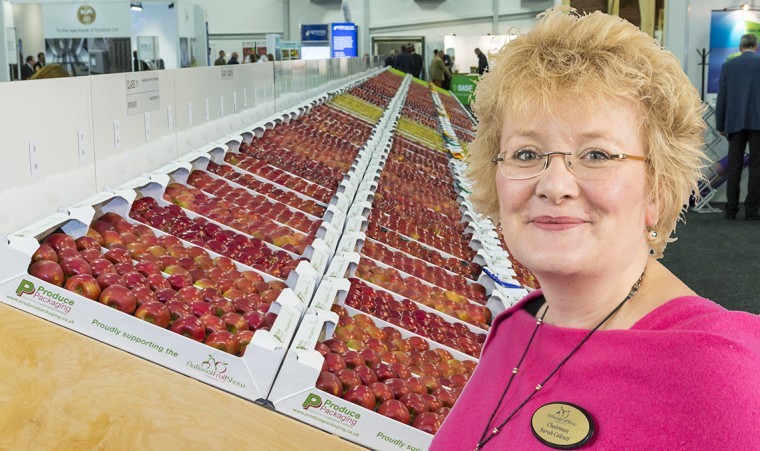Sharing the stage with George Eustice and Ali Capper at this month’s Fruit Focus was Minette Batters, vice president of the NFU; she addressed a good audience.
Her first topic was the growth required within the British fruit sector – our need to grow our home market, to look at import substitution by season extension and varietal selection (well export is a lovely idea but at present exchange rates are going to eat the profit aren’t they) and how we grow consumption in all sectors. Ms Batters believes that there is a big opportunity for us, it needs the right promotion and the buy in of all the retailers to make more of the home grown self-sufficiency potential the sector has.
Then she moved onto the budget announcement. Let’s be clear, the NFU is supportive of a living wage but this was announced without consultation, delivered in a way that has made many certain of an immediate switch to a higher basic hourly rate. This has increased pressure on production companies, the decisions made by our government have a great impact on horticultural business development. These businesses are already suffering with issues from the withdrawal of crop protection products, labour issues and the myriad other problems faced at present. The difficulty you have with a minimum wage is that it impacts on staff morale, and the amount of effort made. The living wage applies to those over 25, if a company is predominantly reliant on young labour, there is a disincentive to increase effort and develop skills. There has been an 11% increase in wages in agriculture already, a further increase will have far reaching implications for many businesses.
The NFU catalyst for change also got a mention with the announcement of the signing up of Lidl to the fruit and veg pledge. I am a little sceptical of the pledge and the obvious parallels to the Grocery code and the work of Christine Tacon but surely the wholehearted pledge by a proactive retailer to abide by a code of good practice looking after their suppliers is entirely a good thing. The pledge is to treat all suppliers fairly, to give greater price stability, paying an agreed price, not charging for customer complaints, sourcing regionally and seasonally. I think that this is a great example of the NFU working with the industry, delivering what growers need. When I was at the Highland Show in June, one of the stands that my team worked on was that of Aldi, it was stocked and staffed by a wide range of their local Scottish suppliers all of whom appeared happy with their lot. The stock for the stand was delivered into a central depot and then brought to the show, demonstrating the speed and care of the supply chain – nothing was damaged, nothing was lost and the soft fruit arrived in perfect condition, just as they guarantee to their stores.
Ali Capper was up next, Ali is a very proactive lobbyist on behalf of both fruit and hops and is now the vice chair of the NFU Horticultural board, she introduced us to the concept of obesogenic – a culture that gives us no alternative but to eat in an unhealthy manner. We all know that we need to eat more fresh food, and she implored the audience that there is a moral imperative to work together to increase consumption, the whole industry at every level. We need to think about how we are presenting fruit and veg to a consumer; as a nation we are 19th in an EU table, three portions consumed a day is all our national average amounts to. At three a day we are not doing very well and with one in six meals not eaten in the home, we need to make eating healthily more convenient.
What can we do?
Well we can write about healthy eating; from a growers perspective, talk about yield and crop protection as well as our new exciting varieties. We also need to be looking at the nutritional value of the varieties that are planned for planting. Are they offering nutritional advantages over other selections, surely this should be part of every breeding programme going forward?
There is surely a big opportunity for those of us who work with retailers to start thinking about dual siting fruit and veg in the way that confectionary is, smaller snack packs are needed, some retailers are already doing a better job but the whole industry needs to look at POS information and purchasing cues to make selecting produce easier.




